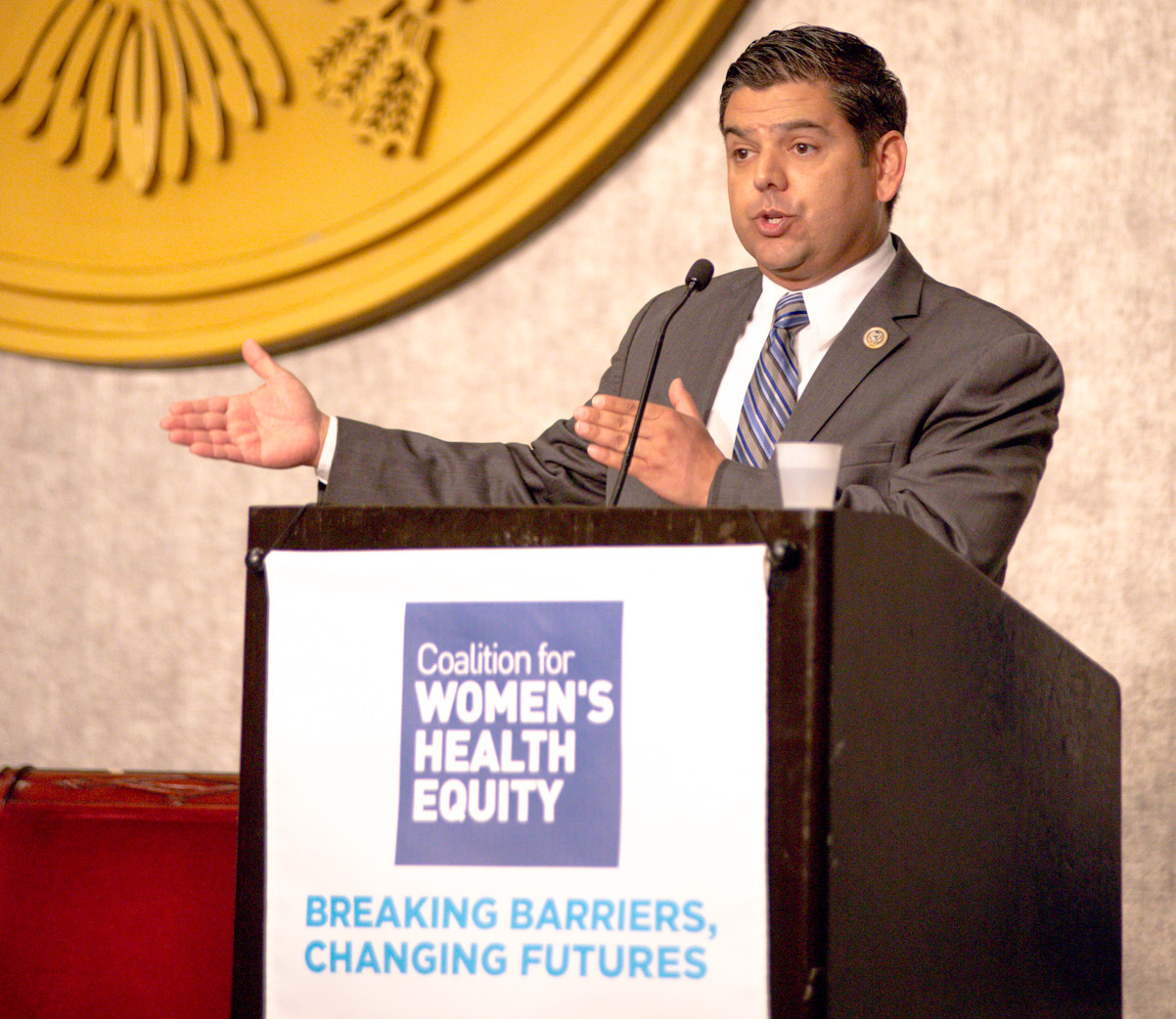Hadassah hosts 300 at talk on women’s health equality
More than 300 women from across the country gathered for the second annual Women’s Health Empowerment Summit, hosted by Hadassah Women’s Zionist Organization of America, and the 28-member Coalition for Women’s Health Equity
The May 16 event in Washington, focusing on the inequities that endanger women’s health and overall safety, was a response to the systemic gender bias in healthcare that stops women from accessing preventive services and equitable care.
“Women are refusing to stay silent about misdiagnoses, the disproportionate burden of caregiving responsibilities, and the lasting scars of harassment and assault.” Hadassah’s National President Ellen Hershkin said in opening the event. “Women’s health doesn’t advance itself — we have to fight to advance it.”
Hadassah Executive Director/CEO Janice Weinman similarly observed, “We’ve also seen how women’s health equity intersects with many aspects of our lives.” She outlined policies and regulations where advocates are moving the dial on women’s health—including the recently reintroduced Health Equity and Accountability Act, upcoming reauthorization of the Violence Against Women Act, and urging the Department of Health and Human Services to address women’s health equity in its new strategic plan.
Legislative keynote speaker and physician Rep. Raul Ruiz detailed the severity of the inequities women face.
“We lack public health outreach, preventative services that could screen for illnesses that could catch them early on that could save their lives,” he said. “We also lack enough women in our healthcare profession and in healthcare studies so that we can truly understand the way different illnesses present between women and men.”
Keynote speaker Fatima Goss Graves, President and CEO of the National Women’s Law Center spoke about the female patient cases that the TIME’S UP Legal Defense Fund, which NWLC administers, is handling.
Summit panels considered women’s health disparities in caregiving, mental health, and clinical trials.
A fireside chat about mental health included a lively exchange between Mary Giliberti, CEO of the National Alliance on Mental Illness, and Dr. Jennifer Payne, Director of the Women’s Mood Disorders Center, Johns Hopkins School of Medicine.
“Forty percent of women report that the shame [of mental health] prevents them from getting help,” Giliberti said.
The day concluded with the panel “Women and Clinical Trials: Past, Present and Future,” which discussed efforts to educate women about clinical trials and encourage their enrollment, as well as the necessary steps to eliminate women’s barriers to clinical trial participation.
The Summit also heard the real-life stories of women who experienced the dangerous effects of health inequities first-hand.
Patient advocate Starr Mirza shared her story of being misdiagnosed for years and then having a heart attack at age 23. Mirza delivered a powerful message and rallying cry for women everywhere: “Listen to your body. You know your body better than anyone. You’re not a faker. You are not dramatic. And, you are not alone.”
Source: Hadassah Women’s Zionist Organization

 63.0°,
A Few Clouds and Breezy
63.0°,
A Few Clouds and Breezy 




